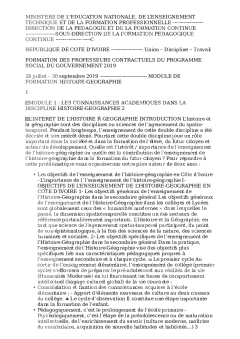The inaudible music of the renaissance from marsilio ficino to robert fludd
The Inaudible Music of the Renaissance From Marsilio Ficino to Robert Fludd roseen h giles University of Toronto This article revaluates the signi ?cance of musical treatises written by the Ficinian physician Robert Fludd ?? By reconsidering the implications of Fludd ? s interpretation of Marsilio Ficino ? s musical philosophy I propose that his ??reconstruction ? of the Renaissance outlook in the seventeenth century is not merely a backward-looking oddity but is rather indicative of a long-standing and pervasive history of inaudible music i e the ??silent ? harmony of the universe and of the human body Music played a central role in Fludd ? s polemics with the scientists Johannes Kepler ?? and Marin Mersenne ?? regarding not the composition of art music but rather the understanding of the composition of the universe itself The societal tensions evident in Fludd ? s musical books reveal that it is not only musical practice but also broad scienti ?c medical and philosophical conceptions of sound that comprise musical understanding in the early seventeenth century Cet article propose de réévaluer la signi ?cation des traités de musique du médecin ?cinien Robert Fludd ?? En reconsidérant ce qu ? implique l ? interprétation par Fludd de la philosophie musicale de Marsile Ficin il avance que cette reconstruction ? d ? une perspective issue de la Renaissance au XVIIe siècle ne correspond pas seulement à un excentrique retour en arrière elle réfère plutôt à la longue et omniprésente histoire de cette musique inaudible qu ? est l ? harmonie des sphères comprise comme harmonie silencieuse de l ? univers et du corps humain La musique a en e ?et joué un rôle important dans les échanges polémiques entre Fludd Johannes Kepler ?? et Marin Mersenne ?? qui ne portent pas tant sur la composition musicale que sur la compréhension de la composition de l ? univers lui-même Les tensions sociétales bien perceptibles dans les traités de musique de Fludd montrent qu ? au delà de la pratique musicale c ? est une conception scienti ?que générale médicale et philosophique qu ? engage la pensée musicale du début du XVIIe siècle Towards the end of the sixteenth century a renewed interest in occult philosophies prompted the revival of Neoplatonic and humanistic thought in many important European courtly circles particularly those in which the magical properties of music and medicine were taken seriously In courts such as that of the landgrave Moritz ??the Learned ? of Hesse-Kassel r ?? himself a skilled amateur musician physicians and musicians alike were interested in exploring the relationships between the humours of the body and the musical modes the a ?nity between the intangible human spirit and Renaissance and Reformation Renaissance et Réforme Spring printemps C roseen h giles musical air and the intimate link between the harmony of the body and the ascent of the soul The appeal of occult philosophy for many high-ranking patrons in late Renaissance Europe is related to the humanist desire to uncover the
Documents similaires










-
65
-
0
-
0
Licence et utilisation
Gratuit pour un usage personnel Aucune attribution requise- Détails
- Publié le Aoû 11, 2021
- Catégorie History / Histoire
- Langue French
- Taille du fichier 145.8kB


